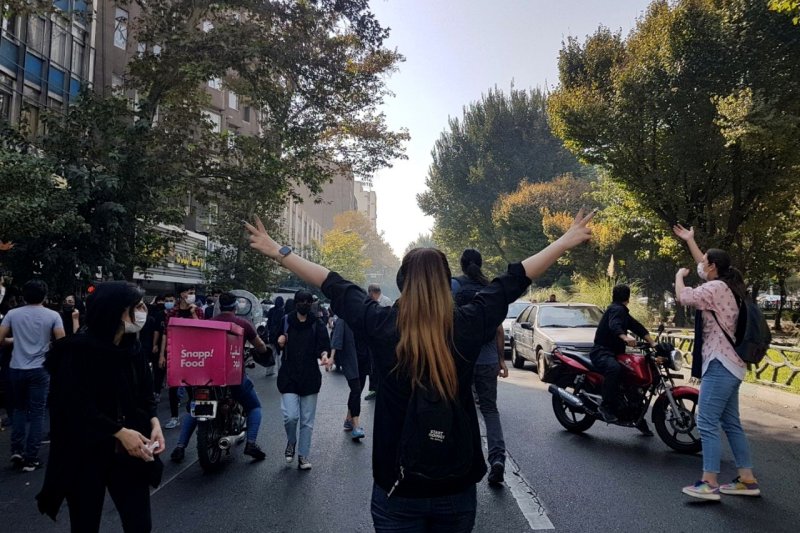Protesters block a road during a protest over the death of young Iranian woman Mahsa Amini, in Tehran, Iran, Oct. 1, 2022. The U.S. Treasury Department Wednesday announced sanctions against three Iranian security officials for the aggressive crackdown on human rights protests triggered by Amini's death in "morality police" custody. Photo by EPA-EFE/STR
Nov. 23 (UPI) -- Three Iranian security officials were sanctioned Wednesday by the U.S. Treasury Department for the continuing aggressive crackdown on women-led Iranian human rights protests.
"The Iranian regime is reportedly targeting and gunning down its own children, who have taken to the street to demand a better future," Brian E. Nelson, under secretary of the Treasury for Terrorism and Financial Intelligence, said in a statement. "The abuses being committed in Iran against protestors, including most recently in Mahabad, must stop."
Sanctioned are Hassan Asgari, the governor of the Kurdish northwestern Iranian city of Sanandaj; Alireza Moradi, commander of the Law Enforcement Forces of the Islamic Republic of Iran; and Mohammad Taghi Osanloo, ground forces commander of the Islamic Revolutionary Guard Corps overseeing West Aerbaijan province.
The Treasury Department sanctions statement said Iranian security officials are increasing aggressive actions "against the Iranian people as part of its ongoing suppression of peaceful protests against a regime that denies basic human rights to its people, especially women and girls."
Iranian judiciary officials said Tuesday that 40 foreign nationals were arrested for participating in the national human rights protests. The protests, now in their third month, were triggered by the death of Mahsa Amini for not wearing the hijab designed to cover women's hair correctly. She died in custody of Iran's "morality police."
The Treasury Department said Asgari's transition from the military to Sanandaj governor is an example of "the systematic spread of military control over cities." Moradi has led protest crackdowns in Sanandaj.
Iran's soccer team Monday refused to sing the Iranian national anthem in apparent protest against Iran's government and in support of the human rights protests.
The National Council of Resistance of Iran estimates that more than 200 cities across all 31 provinces are participating in the women-led human rights protests.















